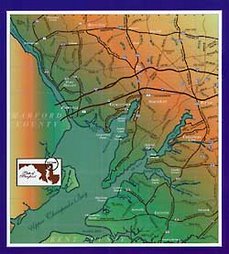August 17, 2007
Letters to the Editor
The Cecil Whig
Elkton, MD 21917
Dear Editor:
There are some promising signs that, as far as smart growth is concerned, our elected county officials are beginning to “get it”. The joint meetings between the Board of County Commissioners and the Planning Commission continue to show promise. The BRAC Action Plan is a solid, coherent plan for dealing with growth in the county (BRAC or no BRAC) and has been endorsed in its entirety by the Cecil Land Use Alliance (CLUA). This year’s appointments to the Planning Commission are good, thinking people with a county-wide perspective.
However, one of the most important things the County Commissioners will do this year is appoint the committee to review and revise the county’s Comprehensive Plan. The process by which the committee for the Comprehensive Plan is being assembled is neither transparent, fully representative of all stake holders, nor well thought out, and we have expressed our disappointment to the Commissioners.
At the joint Commissioners-Planning Commission meeting on July 24, there were public assurances that the original list of organizations that was published in the Whig on July 4 -- assembled by Planning and Zoning chief Eric Sennstrom and County Administrator Alfred Wein – was just a first cut. That list has a distinctly pro-development tilt. Yet it now appears that the organizations listed in that article have been contacted and that many have already nominated representatives. That is, the committee is indeed being assembled according to the Sennstrom-Wein list, rather than using objective and balanced criteria that conform to a strategic vision put forward by the elected County Commissioners.
There are many questions that can be raised about the Sennstrom-Wein list and we believe that a more representative committee could be assembled.
For example, we wonder why the Chamber of Commerce and the Economic Development Commission both have representatives, when their interests are nearly identical? In contrast, why does the agriculture industry, which is quite diverse, have only a single representative? Are all the incorporated towns also to be represented by a single person? Who will speak for historic preservation? How does Bainbridge Development Corporation merit its own seat? Why does the school system (or School Board) not have a representative — the schools are on the front line of growth pressures, and are struggling to deal with growing enrollment. Similarly, the health system needs representation: two areas in the western county most vulnerable to BRAC growth have been declared Medically Underserved Areas by the Federal government, and the BRAC Action Plan recommends that the county apply for a designation as a Health Professional Shortage Area. We also believe that the committee needs an environmental professional, particularly one familiar with the Bay’s issues and the state’s strategy. An expert on water resources (professional hydrologist) should also be on the panel, given the county’s water supply needs and heavy reliance on groundwater.
We ask the County Commissiones to assume leadership over this process and to start from square one. This is not a task that should be left to county staff. The Comprehensive Plan will guide the county’s future for many years, and the Commissioners need to take ownership of the committee appointments.
Sincerely,
George H. Kaplan
President, Cecil Land Use Alliance
Monday, August 20, 2007
Letter to the Editor from the Cecil Land Use Alliance
Subscribe to:
Post Comments (Atom)


1 comment:
I would ask CLUA for a list of groups entitled to representation on the Comprehensive Plan committee.
Post a Comment